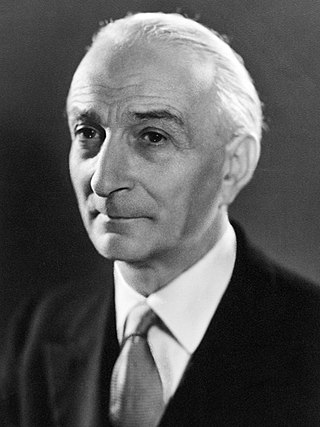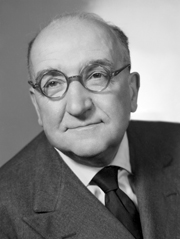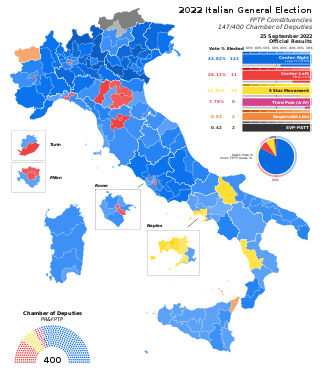Mixed-member proportional representation is a mixed electoral system which combines local majoritarian elections with a compensatory tier of party list votes, which are used to allocate additional members in a way that aims to produce proportional representation overall. In most MMP systems, voters get two votes: one to decide the representative for their single-seat constituency, and one for a political party. Some countries use single vote variants of MMP, although this article focuses primarily on dual vote versions of MMP.

Antonio Segni was an Italian politician and statesman who served as the president of Italy from May 1962 to December 1964, and as the prime minister of Italy in two distinct terms between 1955 and 1960.

Adone Alvaro Ugo Natale Camillo Zoli was an Italian politician who served as the 35th prime minister of Italy from May 1957 to July 1958; he was the first senator to have ever held the office.

Fernando Tambroni Armaroli was an Italian politician. A member of Christian Democracy, he served as the 36th Prime Minister of Italy from March to July 1960. He also served as Minister of the Interior from July 1955 until February 1959, Minister of Budget and Treasury from February 1959 to March 1960, and Minister of the Merchant Navy from August 1953 until July 1955.

The Senate of the Republic, or simply the Senate, is the upper house of the bicameral Italian Parliament, the lower house being the Chamber of Deputies. The two houses together form a perfect bicameral system, meaning they perform identical functions, but do so separately. Pursuant to the Articles 57, 58, and 59 of the Italian Constitution, the Senate has 200 elective members, of which 196 are elected from Italian constituencies, and 4 from Italian citizens living abroad. Furthermore, there is a small number of senators for life, either appointed or ex officio. It was established in its current form on 8 May 1948, but previously existed during the Kingdom of Italy as Senato del Regno, itself a continuation of the Senato Subalpino of Sardinia established on 8 May 1848. Members of the Senate are styled Senator or The Honourable Senator and they meet at Palazzo Madama, Rome.

The Chamber of Deputies is the lower house of the bicameral Italian Parliament, the upper house being the Senate of the Republic. The two houses together form a perfect bicameral system, meaning they perform identical functions, but do so separately. The Chamber of Deputies has 400 seats, of which 392 will be elected from Italian constituencies, and 8 from Italian citizens living abroad. Deputies are styled The Honourable and meet at Palazzo Montecitorio.

A referendum, in the Italian legal system is a request directed to the whole electorate to express their view on a determined question. It is the main instrument of direct democracy in Italy.

The 2006 Italian general election was held on 9 and 10 April 2006. Romano Prodi, leader of the centre-left coalition The Union, narrowly defeated the incumbent Prime Minister Silvio Berlusconi, leader of the centre-right coalition House of Freedoms. Initial exit polls suggested a victory for Prodi, but the results narrowed as the count progressed. On 11 April 2006, Prodi declared victory; Berlusconi never conceded defeat and an ensuing dispute formed.

The Segni Pact, officially called Pact of National Rebirth, was a Christian-democratic, centrist and liberal political party in Italy. The party was founded and named after Mario Segni, a former member of the Christian Democrats who was a prominent promoter of referendums.

Mariotto Segni is an Italian politician and professor of civil law. He founded several parties, which focused on fighting for electoral reform through referendums. He is the son of the politician Antonio Segni, one time President of the Republic of Italy.

The 1994 Italian general election was held on 27 and 28 March 1994 to elect members of the Chamber of Deputies and the Senate of the Republic for the 12th legislature. Silvio Berlusconi's centre-right coalition won a large majority in the Chamber of Deputies but just missed winning a majority in the Senate. The Italian People's Party, the renamed Christian Democracy (DC), which had dominated Italian politics for almost half a century, was decimated. It took only 29 seats versus 206 for the DC two years earlier—easily the worst defeat a sitting government in Italy has ever suffered, and one of the worst ever suffered by a Western European governing party.

Sergio Mattarella is an Italian politician, jurist, academic, and lawyer who is currently serving as the 12th President of Italy since 2015. He is the longest-serving president in the history of the Italian Republic. Since Giorgio Napolitano's death in 2023, Mattarella has been the only living Italian president.
Electoral reform is a change in electoral systems which alters how public desires are expressed in election results.

The 2018 Italian general election was held on 4 March 2018 after the Italian Parliament was dissolved by President Sergio Mattarella on 28 December 2017. Voters were electing the 630 members of the Chamber of Deputies and the 315 elective members of the Senate of the Republic for the 18th legislature of the Italian Republic since 1948. The election took place concurrently with the Lombard and Lazio regional elections. No party or coalition gained an absolute majority in the parliament, even though the centre-right coalition won a plurality of seats as a coalition, and the Five Star Movement (M5S) won a plurality of seats as an individual party.

The Italian electoral law of 2015, also known as Italicum, was an Italian electoral law passed in 2015. The law, which came into force on 1 July 2016, regulated only the election of the Chamber of Deputies, replacing the Italian electoral law of 2005, which had been ruled partly unconstitutional by the Constitutional Court of Italy in December 2013. It provided for a two-round system based on party-list proportional representation, including a majority bonus and a 3% election threshold. Candidates would have run in 100 multi-member constituencies using open lists. The largest party which won over 40% of the vote would automatically win a majority of seats; if no party won 40% of seats, a second round of voting would be held between the two largest parties, with the winner of the second round winning a majority of seats. The name "Italicum" was coined in 2014 by Democratic Party secretary and later Prime Minister of Italy, Matteo Renzi, who was one of the legislation's main proponent.

A constitutional referendum was held in Italy on 4 December 2016. Voters were asked whether they approved a constitutional law that amends the Italian Constitution to reform the composition and powers of the Parliament of Italy, as well as the division of powers between the State, the regions, and administrative entities.

The 2022 Italian general election was a snap election held in Italy on 25 September 2022. After the fall of the Draghi government, which led to a parliamentary impasse, President Sergio Mattarella dissolved Parliament on 21 July, and called for new elections. Regional elections in Sicily were held on the same day. The results of the general election showed the centre-right coalition led by Giorgia Meloni's Brothers of Italy, a radical-right political party with neo-fascist roots, winning an absolute majority of seats in the Italian Parliament. Meloni was appointed Prime Minister of Italy on 22 October, becoming the first woman to hold the office.

The Italian electoral law of 2017, colloquially known by the nickname Rosatellum bis or simply Rosatellum after Ettore Rosato, the Democratic Party (PD) leader in the Chamber of Deputies who first proposed the new law, is a parallel voting system, which acts as a mixed electoral system, with 37% of seats allocated using a first-past-the-post electoral system and 63% using a proportional method, with one round of voting. The Chamber and Senate of the Republic did not differ in the way they allocated the proportional seats, both using the largest remainder method of allocating seats.

Lombardy renewed its delegation to the Italian Senate on March 27, 1994. This election was a part of national Italian general election of 1994 even if, according to the Italian Constitution, every senatorial challenge in each Region is a single and independent race.

The law no. 270 of 21 December 2005 was a proportional electoral law with a majority prize and blocked lists that regulated the election of the Chamber of Deputies and the Senate in Italy in 2006, 2008 and 2013.















